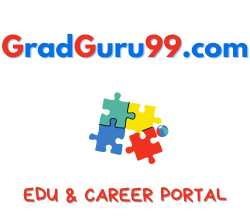Cloud computing has become the backbone of modern IT infrastructure. This guide provides a comprehensive roadmap for beginners to embark on their journey into the exciting world of cloud technologies. It outlines the fundamental concepts, explores popular platforms, and offers practical tips for gaining hands-on experience.
Learning Cloud Technologies as a Beginner – A Quick Guide
The ability to leverage cloud technologies is a valuable asset in today’s IT landscape. This guide demystifies cloud computing and equips beginners with the knowledge and resources to initiate their learning process.
Definitions:
- Cloud Computing: On-demand delivery of IT resources like servers, storage, databases, networking, software, analytics, and intelligence over the internet.
- Cloud Service Models:
- Infrastructure as a Service (IaaS): Provides virtualized computing resources like servers and storage.
- Platform as a Service (PaaS): Offers a platform for developing, deploying, and managing applications.
- Software as a Service (SaaS): Delivers ready-to-use applications accessible over the internet.
- Cloud Deployment Models:
- Public Cloud: Services offered by cloud providers like Amazon Web Services (AWS), Microsoft Azure, and Google Cloud Platform (GCP).
- Private Cloud: Cloud infrastructure dedicated for a single organization.
- Hybrid Cloud: A combination of public and private cloud deployments.
Examples:
- Netflix: Utilizes AWS for content delivery.
- Dropbox: Offers cloud storage as a SaaS solution.
- Salesforce: Provides CRM software as a PaaS offering.
Tools:
- Cloud Management Platforms (CMPs): Tools for managing and automating cloud resources across different providers.
- Cloud Shell Environments: Web-based interfaces for accessing and managing cloud resources.
- Cloud Development Kits (SDKs): Programming tools for building cloud-native applications.
Primary Cloud Vendors:
| Vendor | Offerings | Strengths |
|---|---|---|
| Amazon Web Services (AWS) | Broadest range of services | Scalability, Security, Mature Ecosystem |
| Microsoft Azure | Strong integration with Microsoft products | Hybrid cloud capabilities, Developer tools |
| Google Cloud Platform (GCP) | Containerization and AI/ML focus | Competitive pricing, Big Data Analytics |
Languages and Software:
- Programming Languages: Python, Java, Node.js
- Databases: MySQL, PostgreSQL, NoSQL databases
- Operating Systems: Linux (Ubuntu, CentOS)
- Cloud-Specific Tools: AWS Management Console, Azure Portal, GCP Console
Benefits of Learning Cloud Technologies:
- Increased Scalability and Agility: Cloud resources can be easily scaled up or down based on demand.
- Cost-Effectiveness: Pay-as-you-go model eliminates upfront hardware costs.
- Improved Security: Cloud providers invest heavily in security infrastructure.
- Enhanced Collaboration: Cloud facilitates remote access and collaboration on projects.
- Faster Innovation: Cloud enables rapid deployment and testing of new applications.
Milestone Charter:
The following table outlines a sample learning path for beginners:
| Milestone | Description | Estimated Time | Resources |
|---|---|---|---|
| 1 | Cloud Computing Fundamentals | 2 weeks | Online courses, Tutorials, Books |
| 2 | Choose a Cloud Platform | 1 week | Vendor documentation, Comparison guides |
| 3 | Set Up a Free Tier Account | 1 day | Vendor instructions, Video tutorials |
| 4 | Complete Basic Training Modules | 4 weeks | Vendor-specific training, Interactive labs |
| 5 | Deploy a Simple Cloud Application | 2 weeks | Sample projects, Code walkthroughs |
| 6 | Explore Advanced Cloud Services | Ongoing | Documentation, Case studies, Community forums |
Conclusion:
Cloud computing offers a vast and ever-evolving landscape. By following this step-by-step guide, beginners can develop a strong foundation in cloud concepts and tools. Continuous learning, hands-on practice, and exploring industry trends will ensure success in this dynamic field.
References:
- https://aws.amazon.com/
- https://azure.microsoft.com/en-us/get-started/azure-portal
- https://cloud.google.com/
- https://www.coursera.org/
- https://www.udemy.com/
- https://www.linux.com/
Additional Information:
- Consider pursuing industry certifications offered by cloud vendors to validate your skills.
- Participate in online communities and forums to connect with other cloud learners and professionals.

